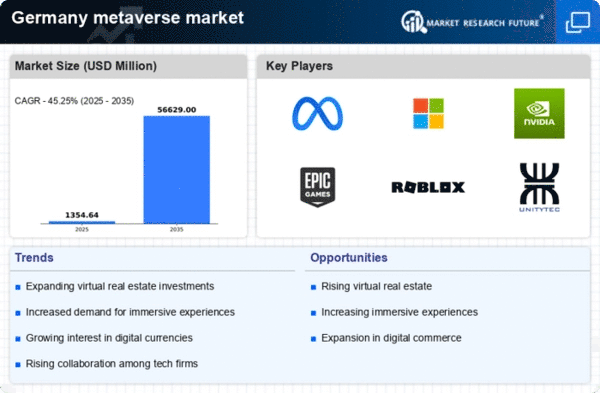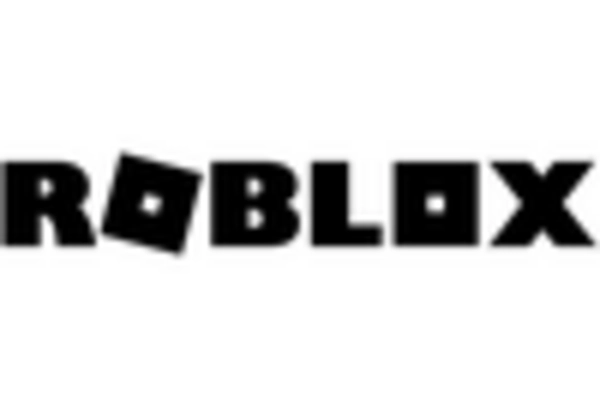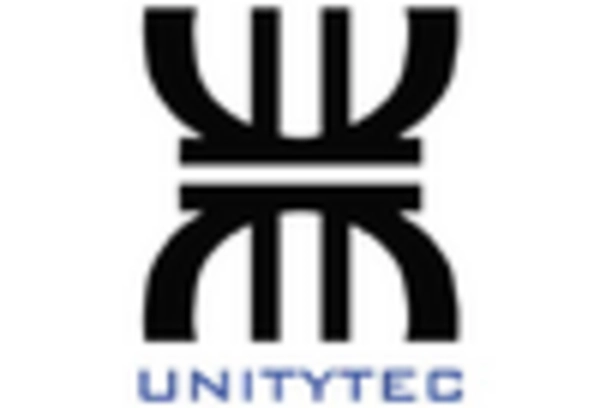Increased Focus on Data Privacy and Security
In the context of the metaverse market, data privacy and security have emerged as critical concerns for users and businesses alike in Germany. With the increasing integration of personal data in virtual environments, there is a heightened awareness regarding the protection of user information. Regulatory bodies are actively working to establish frameworks that ensure data security, which is likely to influence the development of the metaverse market. As of 2025, it is estimated that compliance with data protection regulations could account for up to 15% of operational costs for companies operating within the metaverse. This focus on data privacy not only affects user trust but also shapes the strategies of businesses aiming to enter the metaverse, as they must prioritize secure and transparent practices to attract and retain users.
Growing Demand for Virtual Social Interactions
The metaverse market in Germany is witnessing a growing demand for virtual social interactions. As individuals increasingly seek online platforms for socializing, the metaverse offers unique opportunities for connection and community building. Recent surveys indicate that over 60% of German users express interest in engaging in virtual environments for social purposes. This trend is particularly pronounced among younger demographics, who are more inclined to explore virtual spaces for socializing, gaming, and entertainment. The rise of virtual events, concerts, and gatherings within the metaverse is further fueling this demand. Consequently, businesses are recognizing the potential of the metaverse market as a venue for hosting events and fostering community engagement, thereby driving investment and innovation in this sector.
Expansion of E-commerce in Virtual Environments
The metaverse market in Germany is experiencing a notable expansion of e-commerce within virtual environments. As consumers increasingly engage with digital platforms, businesses are exploring innovative ways to integrate shopping experiences into the metaverse. Recent data suggests that e-commerce transactions in virtual spaces could reach €2 billion by 2026, reflecting a growing trend towards immersive shopping experiences. This shift is driven by the desire for convenience and the appeal of interactive shopping, where users can explore products in 3D and engage with brands in real-time. Retailers are beginning to recognize the potential of the metaverse market as a new frontier for sales, prompting investments in virtual storefronts and marketing strategies tailored to this unique environment.
Rise of Collaborative Workspaces in Virtual Reality
The metaverse market is witnessing a rise in collaborative workspaces facilitated by virtual reality technologies in Germany. As remote work becomes more prevalent, companies are increasingly adopting virtual environments to enhance collaboration and productivity. Research indicates that approximately 40% of German businesses are exploring or implementing VR solutions for team collaboration. These virtual workspaces allow teams to interact in real-time, regardless of geographical barriers, fostering creativity and innovation. The potential for reduced operational costs and improved employee satisfaction is driving organizations to invest in the metaverse market. This trend not only transforms traditional work dynamics but also positions Germany as a leader in the development of virtual collaboration tools.
Technological Advancements in Immersive Experiences
The metaverse market in Germany is experiencing a surge due to rapid technological advancements in immersive experiences. Innovations in virtual reality (VR) and augmented reality (AR) technologies are enhancing user engagement and interaction. As of 2025, the market for VR and AR in Germany is projected to reach approximately €5 billion, indicating a robust growth trajectory. These advancements are not only attracting consumers but also businesses looking to leverage immersive technologies for training, marketing, and customer engagement. The integration of artificial intelligence (AI) with VR and AR is further enriching the metaverse market, allowing for personalized experiences that cater to individual preferences. This technological evolution is likely to drive significant investment and interest in the metaverse, positioning Germany as a key player in the global landscape of immersive technologies.
















